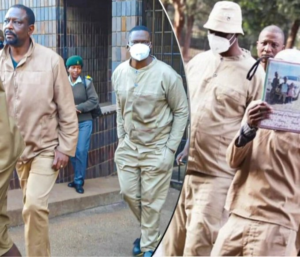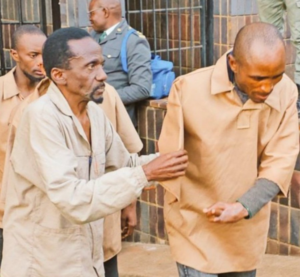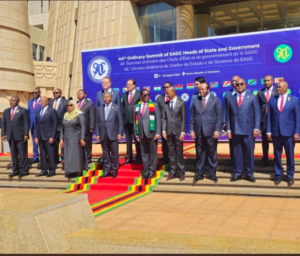UNBOWED AND DEFIANT: JOB SIKHALA FACES CONVICTION WITH RESOLUTE STRENGTH

In a striking demonstration of unyielding courage and defiance, Job Sikhala, a politician renowned for his audacious stand against the Zimbabwean government’s oppressive measures, was convicted yesterday on charges of inciting violence. This development marks a critical moment in the ongoing tussle between government authority and individual resistance. Despite the gravity of his situation, Sikhala’s unflappable demeanor and resolute words, “Let them do what they want. I don’t care, don’t worry,” echo as a beacon of resilience in the face of adversity.
Sikhala’s journey as the emblematic figurehead of resistance is not just a narrative about a single politician’s struggle but a broader reflection of the ongoing political strife in Zimbabwe. His conviction comes amid increasing international scrutiny over the Zimbabwean government’s approach to dissent and political opposition. Job Sikhala, bound in leg irons, standing before the court, becomes a symbol of the oppressive circumstances faced by those who dare to challenge the status quo.
The charges of inciting violence, leading to Sikhala’s conviction, have been a subject of considerable debate and controversy. Critics of the government argue that these charges are often leveraged to silence and intimidate political opponents. Sikhala’s case, therefore, is not an isolated incident but part of a larger pattern of political repression in Zimbabwe. The government, on the other hand, maintains that these actions are necessary to maintain law and order and to prevent unrest.
Sikhala’s defiance in the face of conviction is not merely a personal stance but a powerful statement on the resilience of human spirit against oppression. His words, spoken while bound and shackled, resonate with a profound significance. They are not just a dismissal of his immediate predicament but a broader declaration of an unbroken spirit. Sikhala’s stance is emblematic of a long tradition of resistance leaders who have stood unwaveringly against tyranny, often at great personal cost.
This conviction raises significant concerns about the state of democracy and human rights in Zimbabwe. The use of legal systems to suppress dissent is a tactic seen in various authoritarian regimes throughout history. It poses a dire threat to the fundamental principles of freedom of speech and political expression. Sikhala’s case thus becomes a focal point for international human rights groups and democratic nations, urging them to scrutinize and reevaluate their stance and policies toward Zimbabwe.
The response to Sikhala’s conviction, both within Zimbabwe and internationally, will be telling of the times. It presents an opportunity for civil society organizations, international bodies, and democratic governments to reaffirm their commitment to human rights and democratic principles. Sikhala’s unwavering attitude in the face of adversity serves as a reminder of the cost of freedom and the continuous struggle required to uphold democratic values.
Sikhala’s personal journey through this ordeal is a testament to his character. His refusal to be cowed, even in the face of daunting legal and political challenges, reflects a deep commitment to his principles. It is a stance that has earned him the respect and admiration of many who see in him a champion of the oppressed and a voice for the voiceless.
In conclusion, Job Sikhala’s conviction is more than just a legal proceeding; it is a significant episode in the ongoing narrative of political resistance in Zimbabwe. His unshaken demeanor in the face of what many would consider overwhelming adversity is not just an act of personal defiance but a powerful symbol of resistance against oppression. It is a stark reminder of the continuous struggle for justice and freedom in environments where such ideals are under threat. As the world watches, Sikhala’s resolve and courage stand as a beacon of hope and resilience, inspiring many who yearn for a world where freedom of expression and political dissent are not just tolerated but celebrated as fundamental pillars of a healthy democracy.




